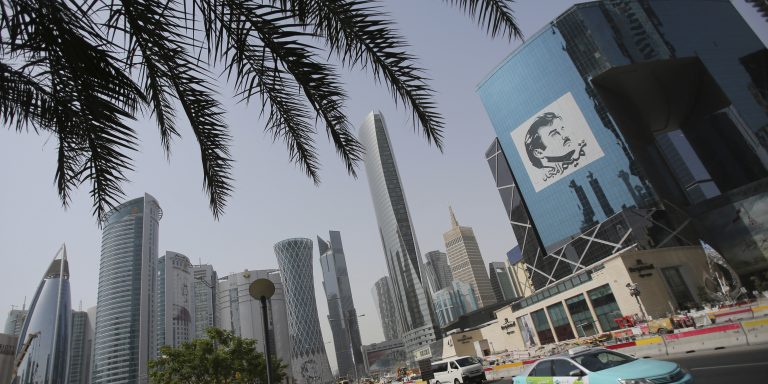INTELBRIEF
June 8, 2018
IntelBrief: The Self-Inflicted Wound of the Gulf Crisis

- June 5 marked the one-year anniversary of the Saudi-led Gulf Cooperation Council (GCC) crisis, with no end in sight.
- On June 5, 2017, Saudi Arabia, the United Arab Emirates (UAE), Egypt, and Bahrain severed ties with Qatar and instituted a quasi-blockade.
- The rupture in the GCC comes at a time when Saudi Arabia and the U.S. had hoped for a more unified front against Iran.
- Like its disastrous war in Yemen, the Saudi campaign against Qatar has backfired and in fact strengthened Iran’s position in the region.
.
The crisis among the members of the GCC has hit its year mark, with no sign of abating. In June 2017, Saudi Arabia led a group of regional countries in a boycott and blockade of neighboring Qatar. Riyadh’s stated reason for the confrontation was Doha’s reported close ties with Iran and its support for terrorist groups. Saudi Arabia, the UAE, Bahrain, and Egypt severed ties with Qatar; Saudi closed off its land border crossing with Qatar and stopped all flights and ships from the country from entering Saudi air and seaports. Rumors of coups and new military alliances have swirled over the last year in Riyadh, Abu Dhabi, Cairo, Manama, and Doha, but there has been no meaningful dialogue about re-establishing ties.
Meanwhile, the crisis resulted in Qatar restoring diplomatic relations with Iran—the opposite of what Saudi Arabia stated was a primary goal of the crisis, which was to counter Iran’s influence in the region. Qatar’s economy took a serious hit after the crisis began, but has since stabilized. The government in Doha has worked to make up for the loss of GCC investment in its financial sector. Qatar’s immense gas reserves and corresponding revenues have sheltered it from a serious attempt by those on the other side of the conflict to wreck Doha’s economy, which would have been disastrous for its government. Doha has sought out better relations with not just Iran, but Turkey as well.
In failing to achieve its stated objectives, and instead producing the opposite effect it intended to, the Saudi-led campaign against Qatar is like the war it is waging in Yemen: both intended to check Iran’s rising regional influence. The humanitarian disaster in Yemen, and the geopolitical instability and economic harm to the GCC because of its actions against Qatar, are the failures of Saudi Arabia and its allies’ political miscalculations.
For its part, the U.S. finds itself in an uncomfortable bind. The U.S. supports Saudi Arabia’s goals to blunt Iranian influence but is harmed by the way Riyadh is choosing to do so. President Trump came out early in support for Saudi Arabia in the GCC crisis, yet since that time the U.S. government has maintained its close relations with Doha. The U.S. has a vital airbase in Qatar—perhaps one of its most strategically located military bases anywhere—and it is not about to lose that power-projecting capability over an ill-conceived strategy by certain GCC members. The U.S. State Department under former Secretary of State Tillerson had urged Saudi Arabia to end its blockade and boycott against Qatar with no success. It is unclear how Secretary Pompeo will address this issue considering his publicly stated position on diminishing Iran’s influence. The longer the crisis continues, however, the greater damage it does to regional cooperation in all matters—especially relating to Iran.
.
For tailored research and analysis, please contact: info@thesoufancenter.org
[video width="960" height="540" mp4="https://thesoufancenter.org/wp-content/uploads/2018/06/Final-Edit-1-211.mp4" poster="https://thesoufancenter.org/wp-content/uploads/2018/06/AP_18155361365243.jpg"][/video]